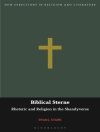This book is a critical introduction to J.R.R. Tolkien’s The Hobbit, but it also advances an argument about the novel in the context of Tolkien’s larger literary and philosophical project. Notwithstanding its canonical place in the fantasy genre, The Hobbit is ultimately a historical novel. It does not refer directly to any “real” historical events, but it both enacts and conceptualizes history in a way that makes it real. Drawing on Marxist literary criticism and narrative theory, this book examines the form and content of Tolkien’s work, demonstrating how the heroic romance is simultaneously employed and subverted by Tolkien in his tale of an unlikely hero, “quite a little fellow in a wide world, ” who nonetheless makes history. First-time readers of Tolkien, as well as established scholars and fans, will enjoy this engaging and accessible study of The Hobbit.
Inhaltsverzeichnis
1. Introduction: In a hole in the ground.- 2. The Way to Talk to Dragons: Interpellation, Style, and Narrative Form.- 3. Nasty Disturbing Uncomfortable Things: The Intrusions of History.- 4. Show Me Now Your Map: Towards a Literary Cartography of Middle-earth.- 5. More Dangerous and Less Wise: Race, Class, and the Geopolitical Order.- 6. Conclusion:
Quite a little fellow in a wide world.
Über den Autor
Robert T. Tally Jr. is a Professor of English at Texas State University, USA. His books include For a Ruthless Critique of All That Exists: Literature in an Age of Capitalist Realism (2022), Topophrenia: Place, Narrative, and the Spatial Imagination (2019), and Fredric Jameson: The Project of Dialectical Criticism (2014).












